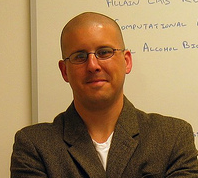From very early in my scientific career, I have been curious about what makes a scientist a great scientist. Certainly, the discoveries and contributions of a scientist are what would lead to public fame and widely acknowledged jeneosity. But what characteristics do they share? What traits or habits led to their 'greatness'? More importantly, what should wannabe jeniuses be focusing on to ensure their eventual place in the scientific hall of fame? I have asked many fairly well known scientists about this. It is hard to truly be considered a 'great' scientist until you die so these scientist I guess would be 'potentially' great. After listening to their wisdom ... and of course mixing it with my own, I have come up with the following four character traits of great scientists:
1. Wide knowledge base. The best scientists seem to know something about everything. They are, of course, masters in their own fields but are also capable of contributing in areas well outside their expertise. Great scientists achieve this by being voracious consumers of knowledge. They seem to be thinking about science all of the time. This can make it difficult for the scientist to socialize with non-jeniuses or get dates with hot chicks. Getting dates with geeky scientist chicks is usually not a problem. (Note: I did not intend to imply that all great scientists are male. I'm writing this from a male perspective because a) I'm a male and b) it's my blog and I can do whatever the hell I want).
2. Experimental design. The great ones are excellent at coming up with the most efficient way to find something out. Even when their experiments don't work, their effort in the design of the experiment ensures that they will learn something useful. I find that many scientists don't spend as much time on this as is usually needed. This is generally done to "save time" but often ends up wasting not just time, but resources as well. A former colleague of mine (and fellow jenius) was fond of saying " the scientific method was developed by people who were in a hurry and wanted to get answers in the most efficient way possible".
3. Analysis of data. Great scientists are great at fitting the results of their experiment into the grand scheme of things. They can quickly make connections to related findings and thoroughly understand the limitations of their results. They are aware of questions posed by their results and immediately are thinking of the next experiment to address these.
4. Reporting results. How can you be great if nobody knows what you discovered? While the stereotypical scientist is seen as an inept public speaker ... I find that the best scientists are excellent presenters. Great writing is also a hallmark of scientific jeneosity but I feel not as strong of an indicator as the ability to deliver an engaging seminar.
And there you have it. Focus on these four areas every single moment of the day for 20 or 30 years and your name will be whispered along side Galileo, Newton, Einstein, Hawking and Allain.
Subscribe to:
Post Comments (Atom)

a.) I don't want to be a scientist. b.) I'm obviously already great. But I would like to comment that these tips could be applied to writing as well. Uh oh...blog post idea!
ReplyDelete